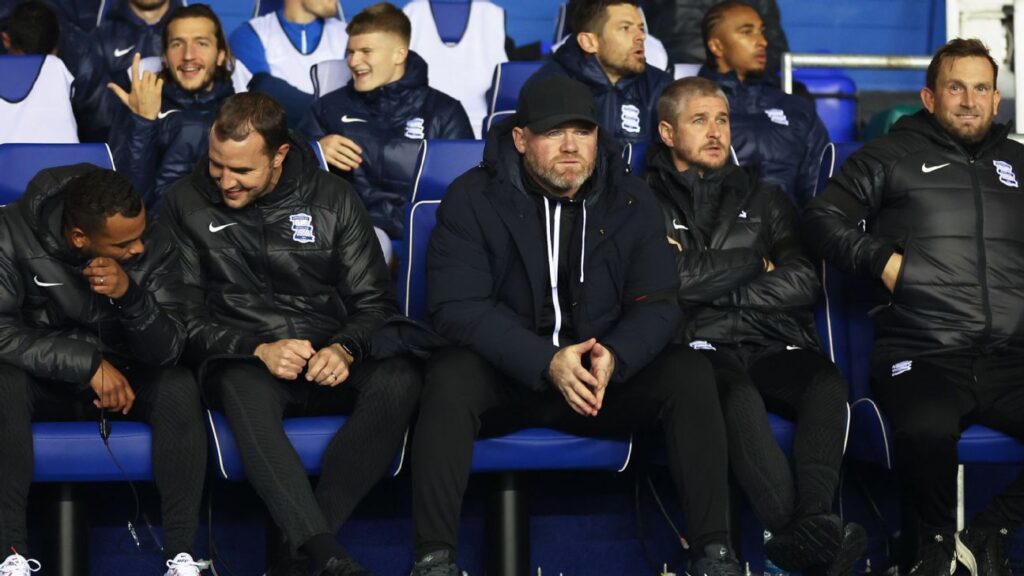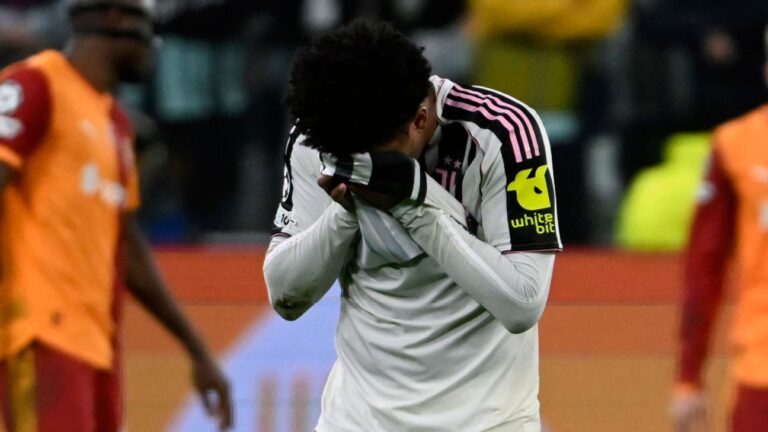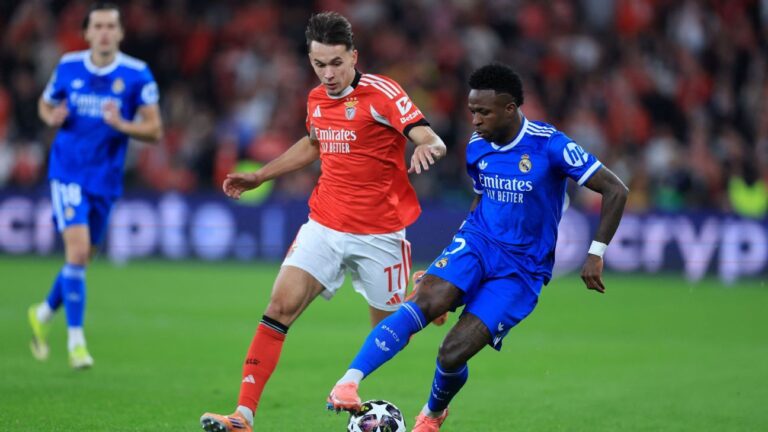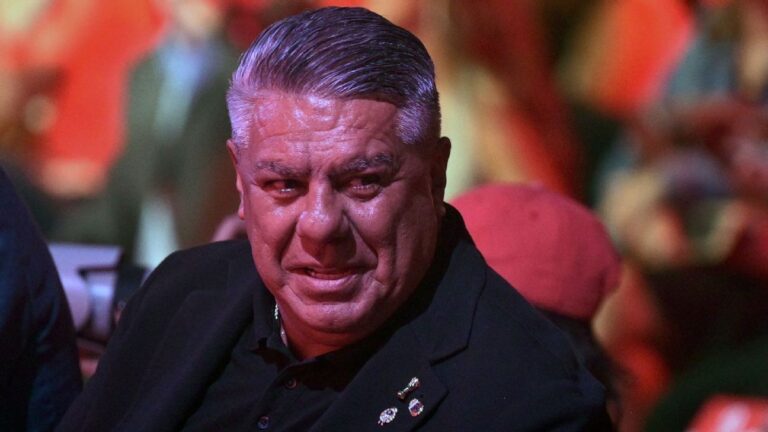BIRMINGHAM, England — There’s a tough crowd at Birmingham City and Wayne Rooney has already experienced the wrath of the club’s long-suffering supporters, who booed him at the end of his first home game (a 2-0 loss to Hull City) as manager last month.
Birmingham are a blue-collar team and proudly so, rooted in the Small Heath area of England’s second-biggest city that was the setting for “Peaky Blinders,” the popular gangland drama series, that brought a new sense of cool to an industrial town that had fallen on hard times. Supporters have embraced the show and its formidable characters who are hard and uncompromising, just like they are.
– Stream on ESPN+: LaLiga, Bundesliga, more (U.S.)
The Royal George pub, adjacent to Birmingham’s St Andrew’s Stadium, is decorated by two murals — one of Trevor Francis, the club’s greatest-ever player, and the other of Thomas Shelby, the flat cap-wearing lead character of “Peaky Blinders.” In February 2022, the club even re-branded itself as Small Heath Alliance for one game to help publicise the sixth and final series: staff attending the EFL Championship fixture against Huddersfield wore flat caps while the team walked out to the show’s theme tune, “Red Right Hand” by Nick Cave and the Bad Seeds.
But the unsavoury side of the show is also reflected in the reputation of the Birmingham supporters. Over the past two seasons, according to official UK government statistics, only Millwall (118) have been subjected to more banning orders — from all football grounds issued by a court of law — than the 111 issued to Birmingham fans.
Rooney knew what he was walking into when he accepted the job last month, admitting that “St Andrew’s was always a hostile place to play” when he visited with Everton and Manchester United. But when the fans began venting their fury during a manager’s first home game, it certainly put their desperation into sharp focus.
“It is a working-class club in a working-class city,” former Birmingham captain Ian Clarkson told ESPN. “The fans are hugely passionate, but they have had enough of treading water. They just want a team they can really get behind.
“Birmingham are basically what Manchester City were before their takeover — a big club in the shadow of more successful neighbours, with a fanbase that is desperate for success.”
Blues supporters have grown tired of the club being the definition of mismanagement and under-achievement. Local rivals Aston Villa have always been perceived as being bigger and more glamorous, while Birmingham just can’t seem to get it right. But new ownership in the summer, following a takeover by the U.S.-based Knighthead Capital Management under the umbrella of Shelby Companies Limited — another nod to the “Peaky Blinders” phenomenon — could yet be the change that finally heralds a new era of stability and success.
Tom Brady was announced as an investor in August, the seven-time Super Bowl winner bringing celebrity and global profile to the club. Despite a strong start to the season that saw the team briefly occupy a playoff position, manager John Eustace was fired and replaced by Rooney on Oct. 11, who had quit his role as head coach at D.C. United just three days earlier.
Rooney promised to bring “no-fear football” to St Andrew’s, but three games in and Rooney’s Birmingham have lost three times. Second-place Ipswich are next up on Saturday, meaning it could get worse before it gets better.
“F— off back to America,” one angry fan shouted at Rooney as he headed for the exit door after Birmingham’s defeat against Hull. They were booed off at half-time and then again at the end, with the home supporters applauding chants to Rooney of “You’re getting sacked in the morning!” from the Hull section.
“I’ve put a couple of heavies on the door,” a club steward told the media officer as he prepared for the post-match press conference.
Welcome to Birmingham, Wayne.
Birmingham City have often been described as a sleeping giant of English football. The club has only won two major trophies since being formed in 1875 — the League Cup in 1963 and 2011 — and their position as one of only two teams in England’s second city, with a population of 1.1 million, underscores their untapped potential.
“We were really excited about the prospect of investing in Birmingham,” Tom Wagner, Birmingham chairman and co-founder of Knighthead Capital, told the Masters in Business podcast. “It’s England’s second city and we understand it to be the youngest city in Europe.
“It’s one of the fastest-growing cities in Europe, has the youngest professional population in Europe, a diverse population, and it’s a city that is going through an urban renewal where a lot of investment is coming in alongside a lot of new folks who are moving in.”
Wagner added: “Then you have the named team in the city that had been underinvested in and had gotten a lot of things wrong in the preceding years. You go there, you spend time with these folks [supporters] and you talk to them. They are just amazing people and we felt that there was an opportunity where we could turn the team around.
“I think our focus on Birmingham is let’s not worry about how much money we make: let’s worry about getting it right, making the right decisions and the success will follow.”
Firing Eustace, when the club were sixth in the table, and hiring Rooney was a big decision; only time will tell if it was the right one. Garry Cook, the Birmingham CEO, said that Eustace was relieved of his duties because “it became clear that there was a misalignment with the leadership of the club.”
Cook is an experienced football administrator having fulfilled the CEO role at Manchester City for three years following Sheikh Mansour bin Zayed al Nahyan’s takeover in 2008. He also knows the value of a high-profile sporting figure, having been president of Nike’s Michael Jordan Brand prior to his role at City.
Cook also led City’s audacious (but unsuccessful) attempt to sign Rooney from Manchester United in 2010, and he admitted recently that he tried to persuade the 38-year-old to leave D.C. United for a managerial position in Saudi Arabia during his brief spell as the CEO of the Saudi Pro League earlier this year. In 2022, Cook was lined up to become CEO at Derby County, where Rooney was already the manager, until a proposed takeover by American businessman Chris Kirchner fell through.
Hiring Rooney at Birmingham plays into both elements of Cook’s previous experience by exploiting his reputation as a star player to make a difference on the pitch, by motivating the squad with his reputation, as well as using Rooney’s profile to increase the spotlight on Birmingham as a club off the field. The second part of that strategy is working, but the first — the most important — has yet to click into gear.
“With risk comes great reward,” Cook said about hiring Rooney. “We know that as a board and we’re not backing just Wayne: we’re backing ourselves. But in management, you have to have all the right support, you’ve got to have the right owners, the right players, the right infrastructure, the right performance facilities and we will provide that for Wayne.”
The Rooney appointment led to a mixed reaction from the club’s supporters, especially with Eustace being fired as the club was seemingly trending up. Yet after more than a decade of Chinese ownership, which led to a lack of investment on and off the pitch and a team that was locked in a cycle of relegation battles, the decisions of the new American owners are being backed by the majority of the fanbase — seemingly despite the reaction to Rooney at games.
“I’d say that 99.9% of the supporters believe the new owners can take the club places,” Neil Cotterell, the vice-chair of fans’ group Blues Trust, told ESPN. “Some fans simply don’t like Wayne Rooney, but others realise that new owners would want their own appointment and that [Eustace] was never going to take us to the Premier League.
“Rooney has had two tough jobs so far with a no-win situation at Derby and then D.C. United, a team with one of the lowest budgets in MLS, so Birmingham will be a real test of his credentials. But after 100 years of under-achievement, we can really see bright times ahead and I believe that Rooney will get the time and the backing he needs to make the team competitive in this division.”
While Rooney was one of the greatest players of his generation, winning every major club trophy at least once during a 13-year career at Man United as well as becoming the first England player to score more than 50 international goals, his managerial track record is less impressive.
During an 18-month spell in charge of Derby, Rooney won just 24 of 85 games in charge — a win rate of 28.2% — but earned praise for guiding the team through a turbulent season in 2021-22 when, after the club were deducted 21 points for financial irregularities, he kept the team in with a chance of avoiding relegation from the Championship until late in the season.
A 51-game reign as D.C. United manager saw Rooney register a win ratio of just 23.5%, winning 12 games and losing 25 as the team finished 12th in the Eastern Conference, well adrift of the playoffs. But while Rooney’s statistics do little to mark him out as a rising star in management, those who have witnessed his coaching at close quarters say he is impressive.
“I’d sit with Wayne in tactical meetings at Derby and the way he would see things in games and players showed you the quality he has,” said Liam Rosenior, Hull’s manager and Rooney’s former assistant at Derby. “He is a top coach, but he just needs time.
“If I was a Birmingham supporter, I’d be excited to have Wayne as manager. I’ve had a year in the job at Hull, Kieran McKenna is doing well at Ipswich after two years in charge, so it does take time to get your ideas across. But I’m sure he will get it right at Birmingham.”
Poland international Krystian Bielik played for Rooney at Derby and the midfielder, who joined Birmingham last season, believes that the team will develop a more attacking style than under Eustace.
“For me as a midfielder, when we get used to the new way of playing, it will be much more enjoyable,” Bielik said. “We will play the ball more often and have more possession. At Derby, he [Rooney] took the job and then went to America to get that experience and he is in a better place now as a manager. I can see it.
“He was always confident in the way he wanted to play. He believes in it and wants us to take a risk and play good football.”
Rooney is unlikely to be fazed by Birmingham’s demanding supporters. During his playing career, Rooney’s incredible self-confidence enabled him to take centre stage in the Man United and England squads as a teenager and he has said that, at the age of 18, he believed he was “the best player in the world, there was no-one better than me.”
Rooney has always had a fearless streak, a toughness he has attributed to his upbringing in one of the most deprived areas of Liverpool, though it has caused him problems in the past. He lambasted England fans on television for criticising the team at 2010 World Cup and his Man United career was pockmarked by bustups with manager Sir Alex Ferguson. Being booed at the end of his first home game in charge of Birmingham barely scratched the surface.
“That’s part of football,” Rooney said. “It’s not an issue for me. You need to win football games to change that.”
At 38, Rooney cuts a different figure to the one who helped Man United win Premier Leagues and Champions Leagues during his time as a player. He doesn’t look like a recently retired elite footballer, but his name still opens doors and commands respect within the dressing room.
Rooney wants to play a more expansive, attacking game than his predecessor, but right now, it looks like he is trying to put square blocks into round holes, admitting after the Hull defeat that he was perhaps asking the players to do more than they are capable of.
“We are trying to change the identity of the club,” Rooney said. “But you can’t overload the players with everything at once because, in different types of jobs or work, too much information can overwhelm them. We are just trying to get the right amount of information into place at the right times as steps to get to where you want go.
“Look, throughout life, change is always scary, but that’s normal. Whatever you’re doing in life, in business or in football, change is always a concern. I had to deal with it throughout my career whenever United signed a new striker because I had to change and prove my worth. Sometimes that change is needed. Birmingham have suffered over the last 10 years as a club, as a fanbase and I completely understand that.
“Changing things on the pitch is my responsibility. There will be ups and downs and it won’t happen overnight, but we either want things to stay as they have been for the last 10 years or we move forward.”
There has been no forward momentum yet under Rooney, though, and the new manager delivered a thinly veiled criticism of his players after the Hull defeat by saying he was “concerned by a lack of effort in the final 10 minutes” before adding that they “need to be fitter.”
Such public statements often have a dual purpose, both challenging the players to improve and deflecting blame for poor results onto the previous coaching staff. Yet those tactics only work for a limited time before they become redundant, and Rooney is already up against the clock.
He has the backing of those who hired him, but poor results and impatient supporters is a dangerous combination for any manager. Even one as thick-skinned as Wayne Rooney.




